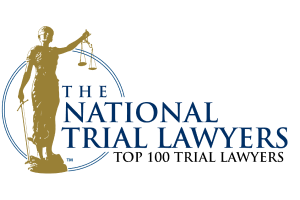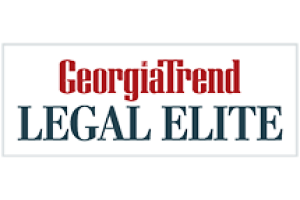False Claims Act / Whistleblower

The Federal False Claims Act, 39 U.S.C. § 3729-33, is a strong, effective piece of legislation that allows private citizens to act as whistleblowers against companies and individuals who attempt to steal from or defraud the federal government (see below for information on the Georgia False Claims Act). Under the Federal False Claims Act private citizens who wish to serve as whistleblowers may seek to recover monetary losses from government defrauders. Most fraud against the government goes undetected except by those employees and private citizens who personally witness fraudulent billing to government programs. Given the breadth of the federal government, there is no shortage of opportunities for fraud and often little government oversight. For this reason, the False Claims Act provides substantial incentives to citizens who are whistleblowers and file suit under the act and on behalf of the United States government.
The False Claims Act is also known as a “qui tam” suit. Qui Tam litigation comes from the Latin phrase meaning in total, “who sues on behalf of the King as well for himself.” Qui Tam legislation was first enacted during the period of the Civil War in response to dishonest suppliers to the Union military. The government had little means to investigate or prosecute so it instituted legislation encouraging private citizens to turn in defrauders. Prior to 1986, the legislation was put to infrequent use. However, after a revamping in1986, the qui tam or false claims suits began to generate significant recoveries of federal tax dollars. More than four thousand qui tam actions have been filed since 1986. The federal government has recovered over $6 billion dollars as a result of this legislation, and private citizens bringing the suits have netted over $960 million dollars in shared compensation.
Knowledge of Fraud
A private citizen who has first hand knowledge of persons or entities filing fraudulent claims on government dollars or, in the case of a reverse false claim, concealing, avoiding or decreasing an obligation to the government through a false record or statement, may file an action under the False Claims Act on behalf of the United States government. The citizen plaintiff (also known as a “relator”) must have actual knowledge of the fraud and may not have learned of fraud through second hand sources such as television, newspapers, court records or court hearings. In addition to knowledge, the relator must have specific evidence of the fraud. The fraud must involve federal or state money. Finally, the fraud needs to have taken place within the last six years.
Filing the Complaint
The complaint is served upon the Department of Justice, is viewed by the court, and held under seal for at least 60 days while the government reviews the allegations. In addition to the complaint, a memorandum of substantive evidence backing up the factual allegations of the complaint must be served on the government. The defendant will not be notified until the government reviews the allegations. The government may decide to join in the action, and if so will prosecute the claim on behalf of the government.
Defendant Liability
Defendants are liable for knowingly presenting or causing to be presented a false or fraudulent claim; knowingly making or causing to be made a false record or statement to get a false claim paid; or conspiring to defraud the government by getting a false or fraudulent claim paid. However, actual knowledge or a specific intent to defraud is not required. A defendant may be liable if he or she acted with deliberate indifference or with reckless disregard for the truth. Further, the evidentiary standard of proof is a preponderance of the evidence, rather than more stringent standards in criminal proceedings.
Damages
Defendants found liable under the False Claims Act are assessed treble damages, three times the amount of actual damage loss to the federal government. Also defendants may be assessed fines of $5,000 to $10,000 per each fraudulent incident. Significantly, the citizen who brings the action is entitled to recover 15-20 percent of the judgment where the government intervenes in the suit and 25-30 percent of the judgment where the government does not intervene. Generally, it is beneficial to persons bringing false claims act lawsuits to convince the government to prosecute the matter. This greatly lowers the cost of privately pursuing the case and will likely result in a more substantial recovery due to the various remedies available to the government. Getting the government to become involved in these matters is often challenging due to thresholds related to damages and evidence. Accordingly, it is best to have an effective attorney involved to properly build the case to encourage government involvement. Also, there are a number of underlying requirements which must be met before the person reporting the fraud is entitled to any portion of the recovery. If the person reporting the case fails to satisfy the requirements under the statute, he or she may be denied any compensation by the government.
Private Action for Retaliation
Often private citizens learn of fraud against the government through their workplace. Becoming a whistleblower on an employer is never easy. Supervisors and co-workers may retaliate. The federal act provides for a private cause of action where the employee suffers retaliation at work as a result of filing the complaint against the employer. If retaliation occurs, the employee is entitled to all the damages arising from the retaliation.
Significant Federal Recoveries in the Last Twenty Years
Since its amended enactment in 1986 the False Claims Act now procures over a billion dollars a year in recovered losses. Most of the losses stem from fraudulent filings in the health care industry.
Similar Georgia Legislation: State False Medicaid Claims Act
In April of 2007 the Georgia legislature enacted the State False Medicaid Claims Act (SFMCA) at O.C.G.A. § 49-4-168. This legislation was modeled on the federal False Claims Act. In 2005 the federal Deficit Reduction Act provided an incentive to all states that enacted similar false claims legislation. The federal government promised states ten percent of all Medicaid fraud recoveries. This act is the first Georgia legislation addressing false claims on state funds. To date, sixteen states, including Georgia, have enacted similar legislation.
Under the state legislation, the fraud must go to Medicaid filings. Government employees or officials whose duty or obligation is to report abuse are exempt from the act and may not file. Private citizens who bring these actions are entitled to damage recoveries similar to the federal legislation. Civil penalties of $5,500 to $11,000 are assessed for each false claim and treble the damages for the loss to the Georgia Medicaid program as a result of the fraud.
The legislation applies to claims submitted not only to the government, but also to other persons or entities, as long as the Georgia Medicaid program provides any portion of money or property. Private employees who suffer retaliation at work as a result of investigating or filing the complaint are entitled to a private cause of action for damages. Notice of the suit is given to the state attorney general. However, in the Georgia legislation, the attorney general has the right to dismiss the suit or settle without the agreement of the original citizen plaintiff. Money recovered under the act goes to the state Indigent Care Trust Fund.
If you know of a situation where the government was cheated you may be a potential qui tam whistleblower. Significant financial incentives are available to citizens who bring private causes of action through qui tam litigation. We have the experience to handle complex False Claims Act litigation. If you believe that you have a case, click here to schedule a free consultation with the law office of Robert Katz.







